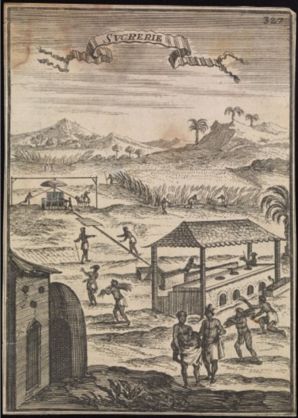The Legacies of the British Slave Trade: The Structures and Significance of British Investment in the Transatlantic Slave Trade, c. 1550-1807
Dr Edmond Smith, Senior Lecturer in Economic Cultures, Co-I for AHRC funded project

What was the structure of British investment in the slave trade? What was the significance of the slave trade to Britain's economic, political, and cultural development? This project seeks to answer these two questions by collating and improving existing data and completing new research to create a comprehensive prosopography of the 6,524 British investors in the slave trade, c.1550-1807. The project will use this data set to engage with seven overlapping research contexts.
- First, it traces capital outflows from the trade into other sectors of the British economy to assess the trade's significance to British economic development.
- Second, the project offers the first comprehensive assessment of capital inputs into the slave trade to understand the changing structures of investment into the trade, and to situate the slave trade within the context of other commercial enterprises.
- Third, the project will explore the role of slave trade investment in the shaping of national and local politics and culture, including the liberalization of the trade in the seventeenth century and abolition in the nineteenth century.
- Fourth, the project will deepen understanding of the role of race and empire in the formulation of British identity by examining the significance of commodification to the racialized depiction of enslaved Africans that emerged in Britain during the seventeenth and eighteenth centuries.
- Fifth, the project systematically explores the role of women not only as investors, but also as transmitters of slaving wealth and as bonds in the social and familial networks constructed around the slave trade to offer new perspectives on the importance of gender to early modern commercial enterprises.
- Sixth, the project's prosopography and network analysis will allow historians of the slave trade to influence a wider interdisciplinary community interested in how individual actors make decisions based on their social, cultural, and economic relationships.
- Seventh, this project's data set provides historians with a unique opportunity to understand the processes that helped integrate Britain's national market in the seventeenth and eighteenth centuries.
Engaging with these seven research strands, this project seeks to engage a range of scholars working across disciplines. Building on the success of two precursor projects on the Legacies of British Slavery [RES-062-23-1764; ES/J017736/1], this project will therefore offer a new emphasis on the slave trade's commercial context and of the networks that structured investment within the slave trade, while highlighting the degree to which the business was embedded within the British economy.
Current projects
Our research work is improving our understanding of people, cultures and societies around the world.
Read more
Past projects
An overview of completed projects from the John Rylands Research Institute and Library dating from 2017.
Read more
